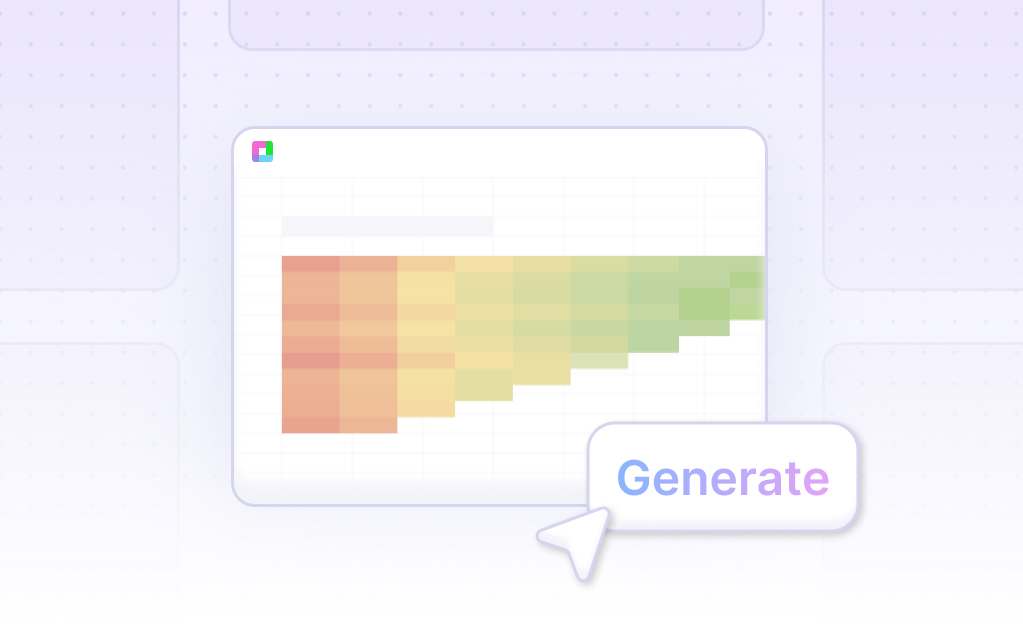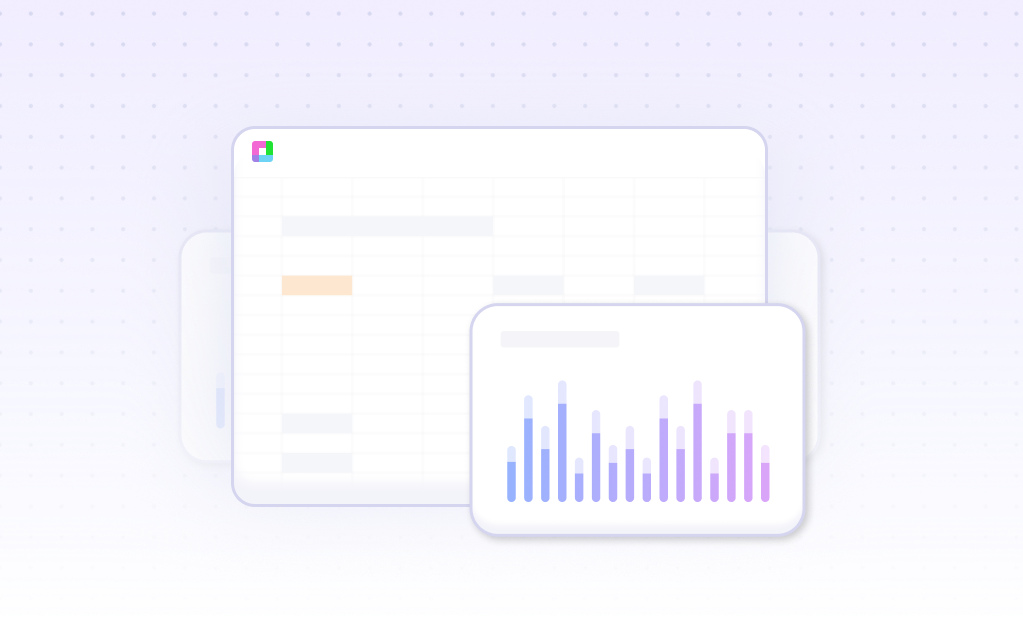
Build Powerful Predictive Models with Machine Learning Analytics
Machine learning enables businesses to uncover patterns, make predictions, and automate decision-making processes. Our Machine Learning Model Template provides comprehensive tools to preprocess data, build predictive models, evaluate performance, and implement ML solutions for various business applications.
From regression to classification, implement various machine learning algorithms effectively. Built for data scientists, analysts, and business professionals, this template helps you harness the power of ML for predictive analytics and data-driven insights.
See how easy it is to generate a Machine Learning Model Excel Template Excel template with Sourcetable

Comprehensive Data Preparation & Feature Engineering
Data Cleaning & Validation
Clean and validate datasets by handling missing values, outliers, and data inconsistencies. Implement data quality checks, standardize formats, and prepare data for machine learning algorithms.
Feature Engineering & Selection
Create new features through transformation, combination, and extraction techniques. Perform feature selection using correlation analysis, importance scores, and statistical methods to improve model performance.
Data Normalization & Scaling
Apply normalization and scaling techniques including min-max scaling, standardization, and robust scaling. Ensure features are on similar scales for optimal machine learning algorithm performance.
Exploratory Data Analysis
Perform comprehensive exploratory data analysis with statistical summaries, correlation analysis, and data visualization. Understand data distributions, relationships, and patterns before modeling.
Machine Learning Algorithm Implementation & Evaluation
Regression Models
Implement linear regression, multiple regression, and polynomial regression models for continuous target variables. Calculate coefficients, predictions, and performance metrics for regression analysis.
Classification Models
Build logistic regression, decision trees, and classification models for categorical outcomes. Implement probability calculations, classification rules, and prediction algorithms.
Model Validation & Testing
Implement train-test splits, cross-validation, and model validation techniques. Evaluate model performance using appropriate metrics and prevent overfitting through proper validation procedures.
Performance Metrics & Evaluation
Calculate comprehensive performance metrics including accuracy, precision, recall, F1-score, ROC curves, and confusion matrices. Assess model performance and compare different algorithms.
Frequently Asked Questions
What machine learning algorithms does it support?
The template supports common ML algorithms including linear regression, logistic regression, decision trees, and k-means clustering. It provides frameworks that can be adapted for various machine learning approaches.
Can it handle large datasets?
The template is optimized for Excel's capabilities and works best with datasets up to 100,000 rows. For larger datasets, it includes guidance on sampling techniques and data reduction methods.
Does it include model interpretation features?
Yes, the template includes model interpretation tools such as feature importance analysis, coefficient interpretation, and prediction explanations to help understand model behavior and results.
How does it prevent overfitting?
The template includes cross-validation techniques, regularization methods, and performance monitoring to prevent overfitting. It provides guidance on model complexity and validation procedures.
Can it be used for time series prediction?
The template includes basic time series forecasting capabilities and can be extended for more complex time series analysis. It works well with trend analysis and seasonal decomposition.
Related ML Tools
Connect your most-used data sources and tools to Sourcetable for seamless analysis.
Frequently Asked Questions
If your question is not covered here, you can contact our team.
Contact Us



